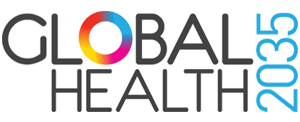April 10, 2015
Germany is chairing the G7 this year and has prioritized global health as a key issue on the G7 agenda. Historically, the G7/G8 has facilitated critical advances in global health, such as launching the Global Fund to Fight AIDS, Tuberculosis, and Malaria and pledging public commitments to tackle neglected tropical diseases (NTDs). This year, as the international community finalizes a post-2015 development framework, the G7's leadership in global health is particularly important.
The Commission on Investing in Health's (CIH) Global Health 2035 report highlights areas for the international community to take coordinated action to achieve dramatic gains in global health. Commissioned by the Kiel Institute for the World Economy, the CIH Secretariat has built on this evidence to identify policy recommendations for the G7 to have the greatest impact across their three global health priorities: (1) NTDs; (2) pandemic response and preparedness; and (3) antimicrobial resistance (AMR).
In a new paper, Global health on the G7 agenda: Policy options to achieve the Global Health 2035 goals, we identify four policy recommendations for Germany and the G7:
- Invest in the discovery and development of new health tools (e.g. medicines, vaccines, diagnostics);
- Support policy and implementation research (including the science of scaling up health tools);
- Strengthen national health systems, including their ability to tackle cross-border threats (e.g. through disease surveillance); and
- Foster global coordination mechanisms.
To maximize the value of their development assistance for health, and help fulfill its previous commitments, the G7 must deliver on these neglected areas of global health.
In a recent BMJ Editorial, Germany, the G7, and global health Gavin Yamey, Sara Fewer, and Sabine Campe debate the role of the G7 in global health and identify bottlenecks that require targeted, coordinated action.
Global Health 2035 findings and evidence on NTDs, pandemics, and AMR are also summarized in a 3-page policy brief, Global health on the G7 agenda: Priorities for international collective action.
The recent Ebola crisis is just one example of how new tools, better research, stronger health systems, and global coordination are crucially needed. The global health community will be carefully watching the upcoming G7 Summit in Schloss Elmau. With coordinated action and targeted financial commitments, the G7 can set the course to achieve dramatic gains in global health.
